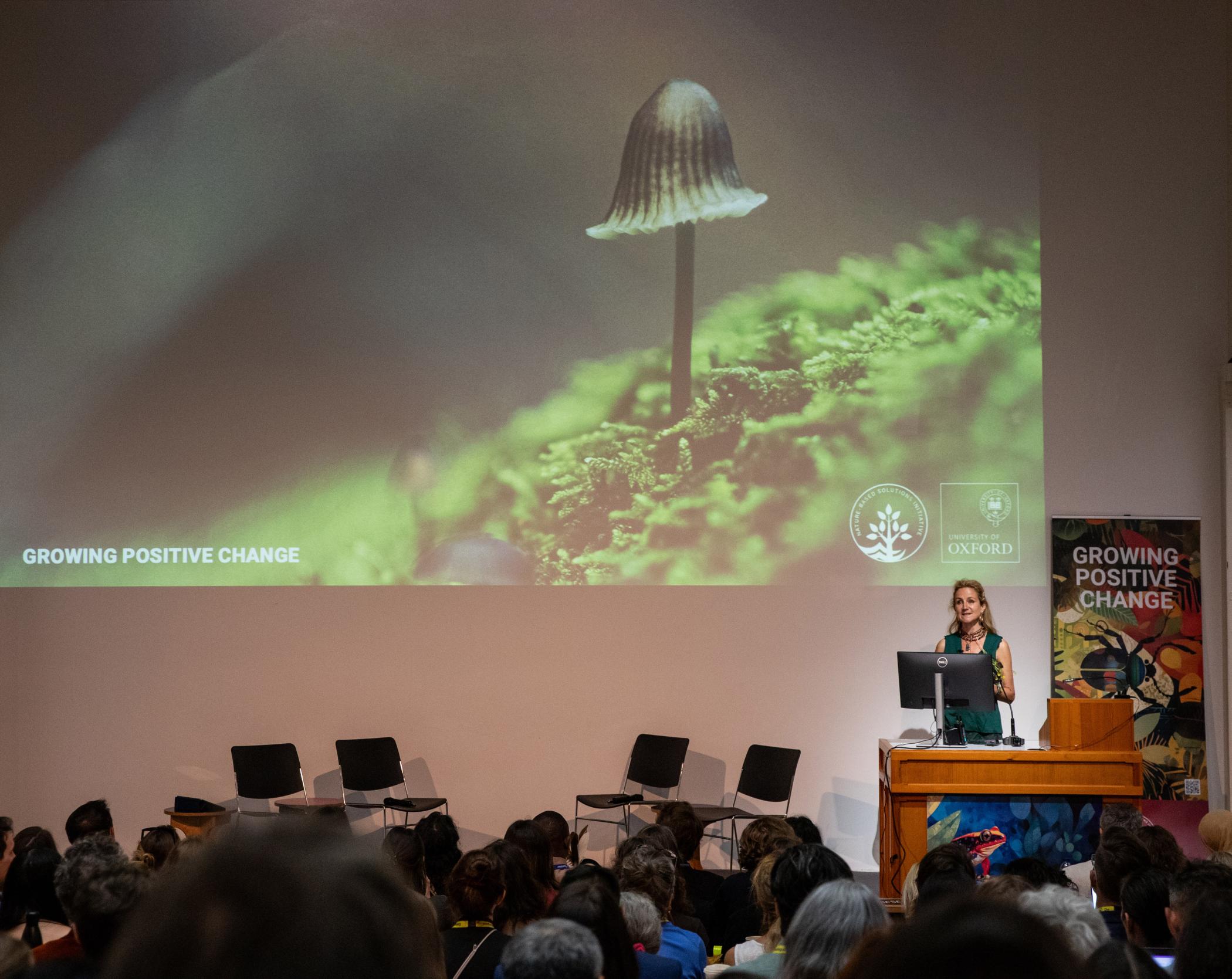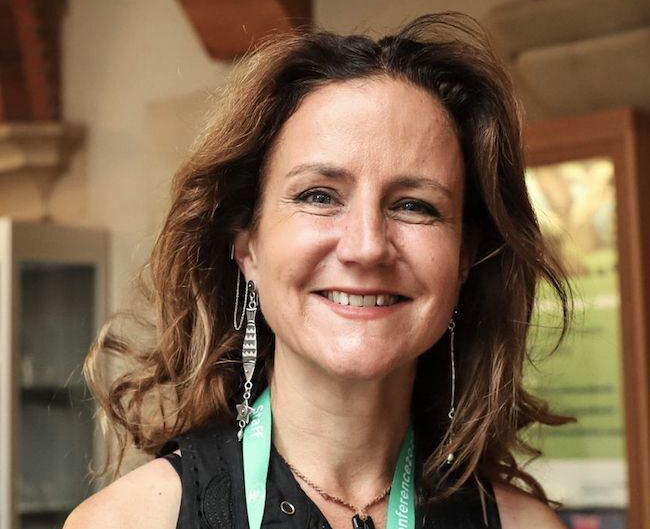Professor Nathalie Seddon on her Marsh Prize, COP16 and the importance of traditional knowledge

Professor Nathalie Seddon’s research career has taken her from the rainforests of Peru to the top levels of academia and policy. Her research has encompassed biodiversity and its relationship with global change, and the ecological and socioeconomic effectiveness of nature-based solutions. Recently, her attention has turned to ensuring biodiversity science and ecology has its rightful place in the design and implementation of climate and development policy. This drive for research impact was recently recognised by the British Ecological Society, who awarded Professor Seddon with a Marsh Prize. The annual award is given to academics with an outstanding current research record that is having a “significant impact on the development of the science of ecology or its application.”
“I was profoundly honoured to receive this award,” said Professor Seddon. “It has been given to many amazing ecologists over the years – people who inspired me. So, to receive it alongside them is a great honour. But I’m also filled with a sense of relief. Because it feels like applied ecology and the sort of transdisciplinary work that I do – that I believe is essential to addressing the huge challenges we face - is now being recognised.”
A holistic approach
Seddon believes that this transdisciplinary approach is beginning to take root across the sciences. She explains: “Until recently, Western science advanced in disciplinary silos. These silos produced profound and important insights. But nonetheless, there is a sense now that we can’t keep working in that way. And some of the most important advances in science are occurring at the boundaries between different fields. I strongly believe that if we work together in a holistic way, then we can find synergies, rather than trade-offs.”
Professor Seddon will be attending the COP16 Biodiversity Conference this year, and hopes to see this holistic, multi-disciplinary outlook influencing a conference that has traditionally remained siloed from the larger, media-saturated climate-COP.
The Road to Brazil
“When these conventions were established, of course the idea was that they would be working in harmony. But for one reason or another – and quite often the reason is just the sheer intensity of the work – they became siloed overtime,” explains Seddon. “The funding and the governance all work separately, to the point where you find that policies are being created that are working directly against each other. And that’s particularly dangerous when we’re talking about biodiversity loss and climate change. Because there’s no point having a cooler planet if it is also uninhabitable due to biodiversity loss. So, it’s vitally important that bridges are made.”
Get this right, Seddon says, and the 2024 biodiversity and climate COPs could pave the way for a successful COP30 in Brazil. “Brazil is the most biodiverse country in the world,” she says. “It also has an incredible amount of carbon locked up in its old growth forests. The world simply will not meet its climate or biodiversity goals without helping Brazil to stop deforestation, and the country also has an opportunity to do some genuinely transformational work on aligning biodiversity and climate. But for that to happen, the roadmap must be drawn at COP16 and COP29 this year.”
Indigenous Knowledge
While Professor Seddon has made her career in the sciences, she believes traditional knowledge – of the kind held by Indigenous Peoples, many of whom see themselves as part of nature– plays a key role in helping to address the interlinked challenges of climate change and biodiversity loss. Governments and NGOs have begun to recognise this to, she says, but must strive harder to engage with traditional knowledge holders in a deeper way. “We emerged from COP29 with the words ‘indigenous knowledge’ embedded many times in the final text. People are saying the right things. But all too often it’s only superficial. You might have a panel of Westerners in suits, and then somebody invited from an indigenous community, but that is just paying lip service, really. It has no authenticity to the indigenous person.”
The co-opting of the term “Nature-based Solutions” by some fossil fuel companies makes resolving this tension particularly urgent, Seddon says. “Some of the biggest pushback against Nature-based Solutions has been from indigenous groups. And I wanted to address that, to hear their concerns. I talked to various indigenous leaders around the world and asked them: what would be meaningful for you? How could we bring your voice into this space in a way that feels authentic for you”?
Permission to reflect
As a result of these discussions, at this year’s Nature-based Solutions Conference, Seddon and her team worked with an organisation called Ostara to intentionally weave traditional ceremonies, art and indigenous knowledge throughout the week-long programme. For example, the event opened with a fire ceremony led by indigenous leaders in a ceremonial space outside the Natural History Museum, inviting participants to pause, reflect, and connect before the day's sessions began. This ceremonial fire remained lit throughout the duration of the conference, providing a continuous symbol of connection and intention, and was finally extinguished in a closing ritual that brought the event to a meaningful conclusion. “It was a challenge to incorporate these elements. But that’s what we were asked to do, and we took it very seriously,” affirmed Seddon. “This ceremony was not just a symbolic act, but an invitation to reframe the way we approach nature and our relationship with it,” she added.
The fact that Seddon and her team succeeded in embedding traditional ceremony and cultural practices into what was predominantly a scientific conference offers hope. “It’s a step in the right direction,” reflected Seddon. “We need to give ourselves permission to slow down, to be imaginative and bold, and to encourage one another to think more radically. Real transformation requires more than scientific data; it calls for connection—to nature, to each other, and to deeper values that sustain life. As much as we need good science, we also need art, culture, and diverse forms of knowledge. A good nature-based solution integrates all these elements."

